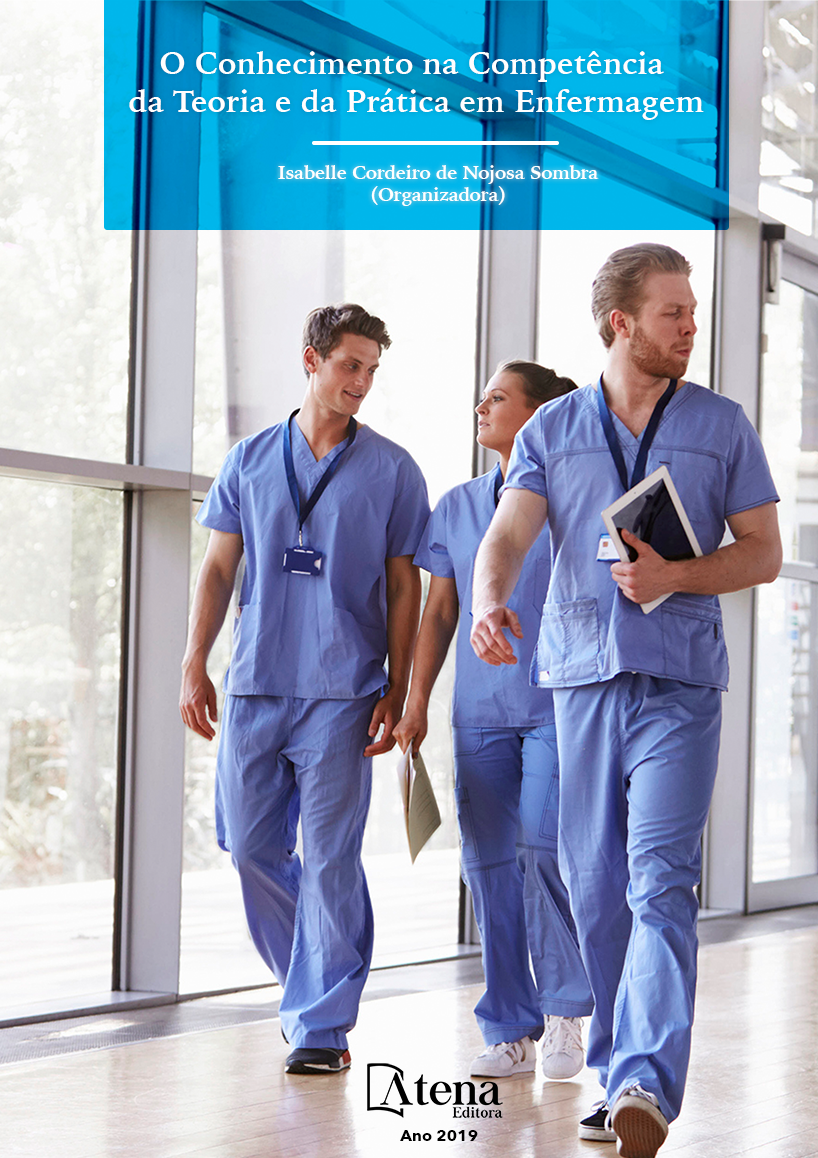
CONHECIMENTO DAS GESTANTES EM PRIVAÇÃO DE LIBERDADE SOBRE O ALEITAMENTO MATERNO
As gestantes, incluindo as que se
encontram em situação de cárcere, precisam
conhecer as técnicas adequadas de aleitamento
materno, para que ele ocorra de forma
satisfatória. Este estudo descritivo, exploratório,
transversal, quantitativo objetivou avaliar o
conhecimento das gestantes em privação
de liberdade sobre o aleitamento materno. A
amostra foi constituída de 20 gestantes que se
encontravam em regime fechado ou semi-aberto.
A técnica da coleta foi a entrevista, conduzida
por um instrumento semiestruturado, validado e
respeitando os preceitos da Resolução 196/96.
Os dados foram armazenados e processados
utilizando o software estatístico IBM SPSS
versão 20.0, apresentando os seguintes
resultados: 100% acreditam que o leite materno
possui nutrientes em quantidade e qualidade
para o desenvolvimento e crescimento da
criança, e aumenta o vínculo mãe-filho; 95%
que reduz a morbidade; 65% acreditam ser um
cuidado adequado colocar o bebê na posição
lateral no berço; 100% que a mãe deve estar
calma e relaxada para amamentar seu filho;
95% que não se deve lavar com esponja e
sabão; 95% considerou um cuidado adequado,
a boca do bebê estar virada para fora, estilo
‘’boca de peixe’’; 75% responderam que caso
haja lesão no mamilo, deve ser colocado o
próprio leite; 70% acreditam que a criança deve
ser amamentada sempre que quiser. Assim,
o conhecimento das gestantes em privação
de liberdade sobre o aleitamento materno se
mostrou adequado, entretanto, é importante
que boas práticas para amamentação sejam
estimuladas, para que esse processo ocorra de
forma satisfatória.
CONHECIMENTO DAS GESTANTES EM PRIVAÇÃO DE LIBERDADE SOBRE O ALEITAMENTO MATERNO
-
DOI: 10.22533/at.ed.67119120310
-
Palavras-chave: Aleitamento materno; gestantes; privação de liberdade; conhecimento.
-
Keywords: Breastfeeding; pregnant women; deprivation of liberty; knowledge.
-
Abstract:
Pregnant women, including those
in prison, need to know the proper techniques
of breastfeeding, in order for it to occur in a
satisfactory way. This descriptive, exploratory,
transversal, quantitative study aimed to evaluate
the knowledge of pregnant women in deprivation
of liberty on breastfeeding. The sample consisted
of 20 pregnant women who were in a closed
or semi-open regime. The technique of the collection was the interview, conducted
by a semistructured instrument, validated and respecting the precepts of Resolution
196/96. The data were stored and processed using the statistical software SPSS
version 20.0, with the following results: 100% believe that breast milk has nutrients
in quantity and quality for the development and growth of the child, and increases the
mother-child bond; 95% that reduces morbidity; 65% believe it is a proper care to place
the baby in the lateral position in the crib; 100% that the mother should be calm and
relaxed to breastfeed her child; 95% that one should not wash with sponge and soap;
95% considered proper care, the baby’s mouth being turned out, ‘fish mouth’ style;
75% answered that if there is a nipple lesion, the milk itself should be placed; 70%
believe that the child should be breastfed whenever he wants. Thus, the knowledge of
pregnant women in deprivation of liberty about breastfeeding was adequate, however,
it is important that good breastfeeding practices are encouraged so that this process
can occur in a satisfactory way.
-
Número de páginas: 15
- Ana Carolina Cristovão Silva
- Priscila Santos Alves Melo
- Priscyla de Oliveira Nascimento Andrade
- Tatiane Gomes Guedes
- Francisca Márcia Pereira Linhares
- Ester Marcele Ferreira de Melo
- Ester Melo


